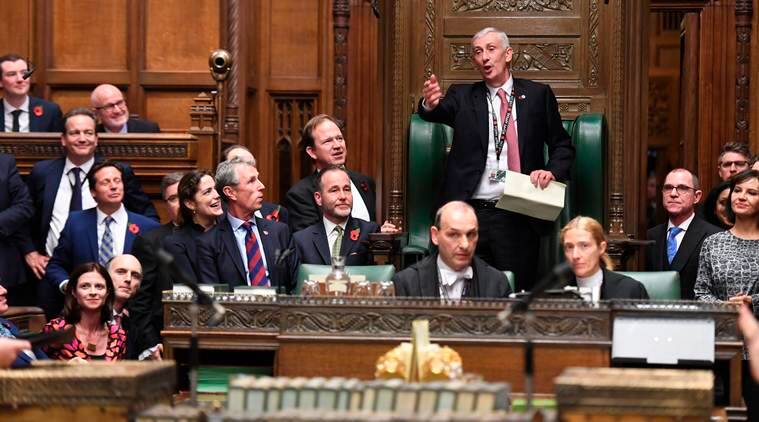
British lawmakers elected Labour’s Lindsay Hoyle as Speaker on Monday to take on the role of refereeing the next parliamentary instalment of the protracted struggle over Brexit.
In the three years since Britain voted to leave the European Union, the Speaker has played an increasingly influential role in the process of parliamentarians debating the rights and wrongs of Brexit and passing the laws needed to implement it.
The Speaker is the arbiter of procedural disputes in the House of Commons, parliament’s lower chamber, and has the power to decide which challenges to the Conservative government’s plans are allowed to proceed.
Former Speaker John Bercow, who stood down last week after 10 years, was accused of breaking convention and favouring those who wanted to stop the government’s exit plans. But he was feted by others who saw him as empowering them to challenge and scrutinise the executive.
“I will be neutral, I will be transparent,” 62-year-old Hoyle said after his colleagues carried out the parliamentary tradition of dragging him to the speaker’s chair.
Parliament had to make sure the “tarnish is polished away”, he said, adding: “This House will change but it will change for the better.”
Foremost among those challenges will be Brexit, but the Speaker will also have to handle criticism that parliament’s antiquated setup has allowed bullying and harassment.
“I believe you will also bring your signature kindness and reasonableness to our proceedings and thereby help to bring us together as a parliament and a democracy,” Prime Minister Boris Johnson said after Hoyle’s election.
Hoyle, who has been deputy speaker since 2010, was elected after four rounds of secret ballots in a process which took several hours. He beat fellow Labour lawmaker Chris Bryant in the final round by 325 votes to 213.
Since 2017, the ruling Conservative Party has not had a majority in parliament, giving rivals more freedom to challenge the government and the Speaker a big say in the process.
But with a national election coming on Dec. 12, the new Speaker’s first job will depend on what government the public elect.
“Some of the decisions that John Bercow has made in the chair have been quite unprecedented. They’ve been very unexpected. Some MPs (Members of Parliament) have loved them. Some MPs have loathed them,” said Alice Lilly, senior researcher at the Institute for Government think tank.
“We’ll have to wait and see whether the new Speaker faces similar conditions with Brexit and minority government. If we have a majority government, it might be that actually Commons procedure becomes a little bit less crucial.”